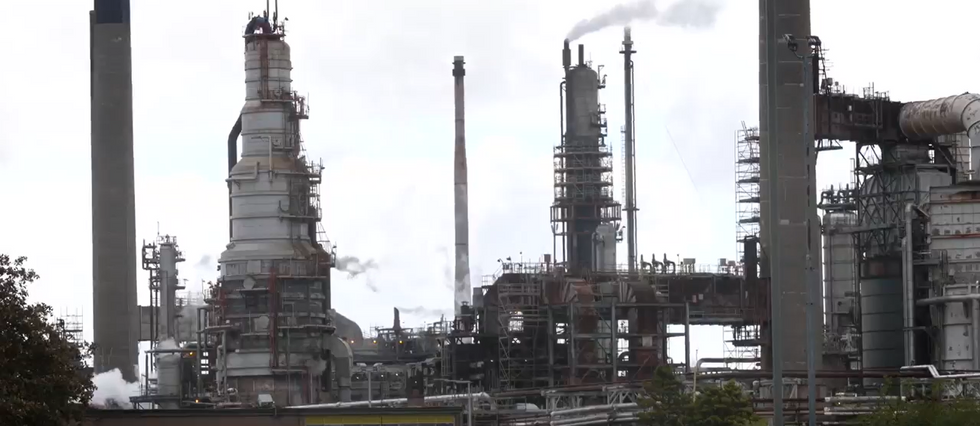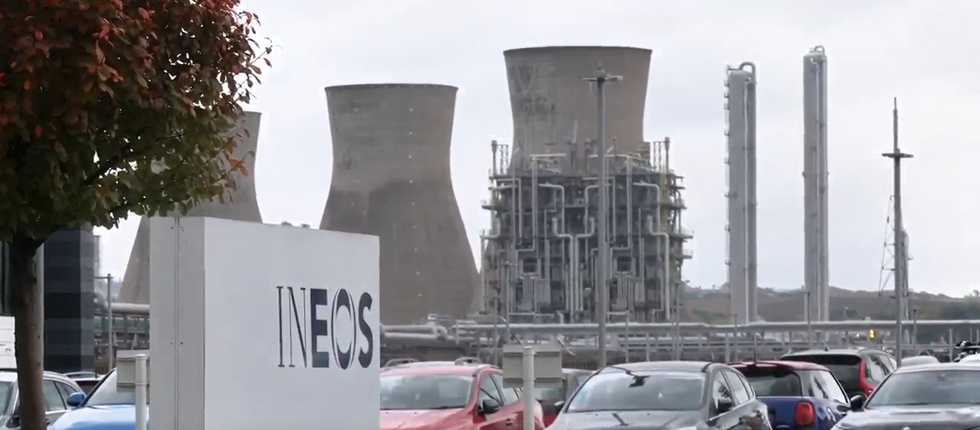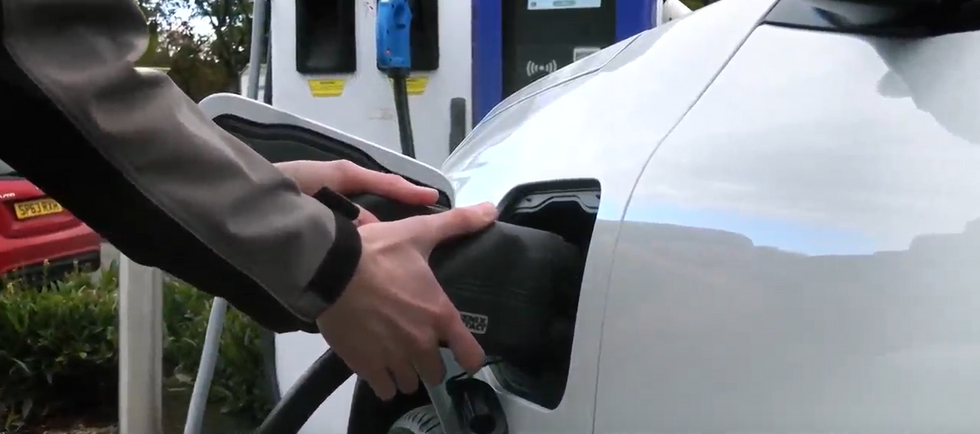Net zero has hit parts of Scotland hard
GB News
Billionaire tycoon Sir Jim Ratcliffe revealed the plant is currently losing £380,000 every day
Don't Miss
Most Read
Trending on GB News
Energy giant Petro-Ineos confirmed its plans to close Grangemouth Refinery, the last Scottish industrial site of its kind in March 2025 with the loss of 400 jobs.
The news couldn’t be further from the 100th anniversary milestone Grangemouth should have been celebrating this year.
Billionaire tycoon Sir Jim Ratcliffe revealed the plant is currently losing £380,000 every day, blaming global competition from Asia, Africa and the Middle East on top of a sharp downturn in fuel dependency.
Since 1924 Grangemouth has played a key role in British petrochemicals, but with net zero targets pressuring governments to rethink the energy sector, the advent of electric vehicles (EV) has seen consumer demand drop significantly.

Grangemouth Refinery has been confirmed to close in March 2025
GB News
Grangemouth stands to lose a major employer in the area and the core of its identity as an industrial town.
Workers past and present mull over “the death date” at The Dundas Tavern, a local pub in the town centre frequented by shift workers.
“It’s going to be a ghost town,” said one, with another highlighting the plant’s closure will be “the last nail in the coffin” after years of watching helplessly as their town fell into decline.
Former Grangemouth Fire Master, Ray Burns, still lives in the town and is a regular at The Grangemouth branch of the Royal British Legion.
“If we lose Grangemouth,” asks Ray, “how many people are going to stay in this area?
“A lot of them will disappear and that’s our young folk, apprentices and all the rest because there’ll no longer be serious work up here.”
Grangemouth is just one example of communities feeling the pressures of net zero initiatives.
Glasgow’s West End residents are facing parking permit price increases of up to 170 per cent, with the community planning to introduce permit tiers determined by vehicle CO2 emissions.
LATEST DEVELOPMENTS:

400 jobs will be lost
GB News
A car releasing 0-50 grams of CO2 per kilometre need only pay £80 annually to park on the street, while a vehicle releasing 226g/km now need to fork out more than £300.
Elsewhere, the NewBridge housing development is experiencing a different problem with motorists lining the freshly tarred streets with parked cars to escape the rising cost of city parking fees and LEZ restrictions.
Glasgow’s low emission zone launched in June 2023, banking £1million from fines in its first year.
Despite drawing heavy criticism from motorists, the city’s Air Quality Annual Progress Report data measured Nitrogen Dioxide falling by 20 per cent in the town centre.
Glasgow City Council has hailed this news as validation for its LEZ, but Newbridge residents have criticised the council for replacing one problem from the centre to another on the outskirts.
The strain felt by Grangemouth, Newbridge and Glasgow’s West End have one thing in common: cars on the road.
In line with EU targets, the UK Government plans to make 80 per cent of new car sales - and 70 per cent of new van sales - electric vehicle purchases by 2030, rising to 100 per cent by 2035.
Those targets are passed to car manufacturers who in turn pass them on to independent dealerships, where the family-owned Arnold Clark reigns supreme in Scotland.

The UK Government plans to make 80 per cent of new car sales electric vehicle purchases by 2030, rising to 100 per cent by 2035
GB News
Taking matters into their own hands, the firm introduced new Innovation centres in Stafford and Glasgow to better introduce the public to the world of zero carbon vehicles.
Seeing the advancement of the technology outstrip public awareness, Group Sales Training Manager Louise Joyce says, “we saw that there was a need to be there as a source of truth for the general public.”
“[Many] people are just genuinely interested to see what this is all about and where it’s going to fit in with their lives.”
When asked whether the public was ready to match the pace set out by the UK government, she admits: “There’s too many people who need to come to the table to make sure that absolutely happens.
“Manufacturers need to come to the table with the product at prices people are able to purchase at; we need to come to the table to make sure our people are skilled and knowledgeable enough to have these conversations; and the infrastructure of the charging network needs to be there plus the regulators and the government.”
The rejection of change nothing new, but the stringent pace of change around EV sales has drawn significantly more skepticism since being first announced in 2023.
EV sales have risen by 24 per cent in the last 12 months, but private purchases have only rose by 3.6 per cent and the rest have been snapped up for car fleets, according to the Society of Motor Manufacturers & Traders (SMMT).
The trade body cautioned that manufacturers will likely miss the inaugural 22 per cent EV Sales target set for 2024, while car makers have pointed to a lack of Government incentives encouraging drivers to buy in to a cleaner, greener future on the road.







